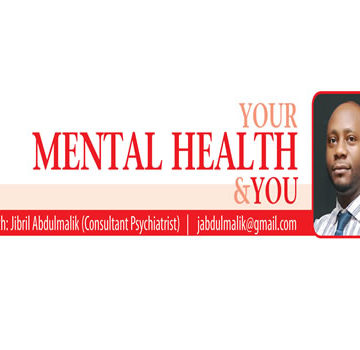THERE is a growing acceptance that mental health problems are common and there is a need to see mental health professionals in order to receive expert care and intervention. However, several misconceptions and questions continue to arise about who needs to see a mental health professional. What should the expectations be? How does it work? Is it overrated? Can’t I just wing it by myself? And so on. In today´s article, we attempt to respond to some of these questions.
Who needs to see a mental health professional?
Anyone and everyone may need to see a mental health professional if they are having difficulties with their thinking, mood (emotions), behaviour, sleep, interpersonal relationships, functioning, drug abuse, and so on which is causing them distress or causing distress to others around them. There may also be associated difficulties with their day-to-day functioning at work, with their families as well as their social life.
Mental health professionals only see people who have a mental illness or are mad.
No this is not correct. Some people come into therapy to resolve problems with anxiety, family and interpersonal functioning, marital difficulties, self-esteem issues, addictive behaviours, anger management issues and so on. Of course, some people also have diagnosable mental health challenges that may require specific treatments and interventions.
What is the difference between a coach, psychologist and psychiatrist? Are they all doing the same thing?
No, they are not doing the same thing, though some overlap certainly exists in that they all contribute towards helping individuals live happier and more productive lives.
A coach is not a healthcare or medically qualified professional, but is someone with training and certification to understand the individual as well as organisational difficulties and how to guide and help them to overcome them. They serve as expert guides to help people actualise their life goals, meet their targets and be more productive. They are increasingly very important to help individuals and organisations to become more productive and happier with themselves. However, for a coach to be effective, it pre-supposes that the client is in good health and there are no background mental health problems.
A psychologist is a professional who has had a first degree in the social sciences, usually in psychology, counselling or education; and has received postgraduate training at Master and PhD levels in the specialised field of clinical psychology. Thus, they are experts at understanding human behaviour across the lifespan, understanding and detecting abnormalities in behaviour, personality or relationships. The specialisation may also be in other fields of psychology, such as organisational psychology, sports psychology, developmental psychology and so on. But those commonly referred to as therapists are those that have specialised in Clinical Psychology. They are especially adept at the use of psychological assessments and instruments for evaluating personality, and intelligence quotients as well as the provision of specialised therapies. But they do not prescribe medications, because they are not medical doctors. Therefore, when patients are severely ill, or those who are not getting better with therapy alone, they refer them to psychiatrists for additional use of medications.
Psychiatrists are medical doctors who have undergone postgraduate specialisation in the field of psychiatry. Thus, they are medical specialists whose training also incorporates basic as well as clinical psychology; in addition to studying mental disorders and how to manage and treat them. Thus, a psychiatrist can diagnose medical problems, identify mental health problems as well as provide treatment interventions that may include the use of therapy sessions, as well as the prescription of medications where it is deemed necessary. Thus, they are relevant across the spectrum of mental health promotion, prevention, early identification and treatment of disorders as well as rehabilitation.
Are coaches, psychologists and psychiatrists all mental health professionals?
No, coaches help with life issues and improving personal productivity and attainment of goals. Thus, they are often called Life Coaches. But they are not mental health professionals. Psychologists and psychiatrists are mental health professionals.
If I see a mental health professional for therapy, will they make all my problems go away? Can’t I just wing it?
Mental health professionals do not wield a magic wand. You need to be actively engaged as they try to help you understand issues such as previous trauma, unresolved conflicts, negative patterns of thinking and responding to situations that may be causing distress and unhappiness in the here and now. The overall goal is to gain insight into the unhelpful patterns of dealing with situations and learn better and more positive ways of thinking and responding to such situations. And where there are identifiable mental health problems, to receive specific therapies and treatments (including the use of medications where necessary) to facilitate recovery and gain mastery over addictions too. We all need a helping hand from time to time. Why suffer alone and be groping in the dark, when you can benefit from expert professional care?
Read Also: Insecurity: FCT minister, Police commissioner meet senators
